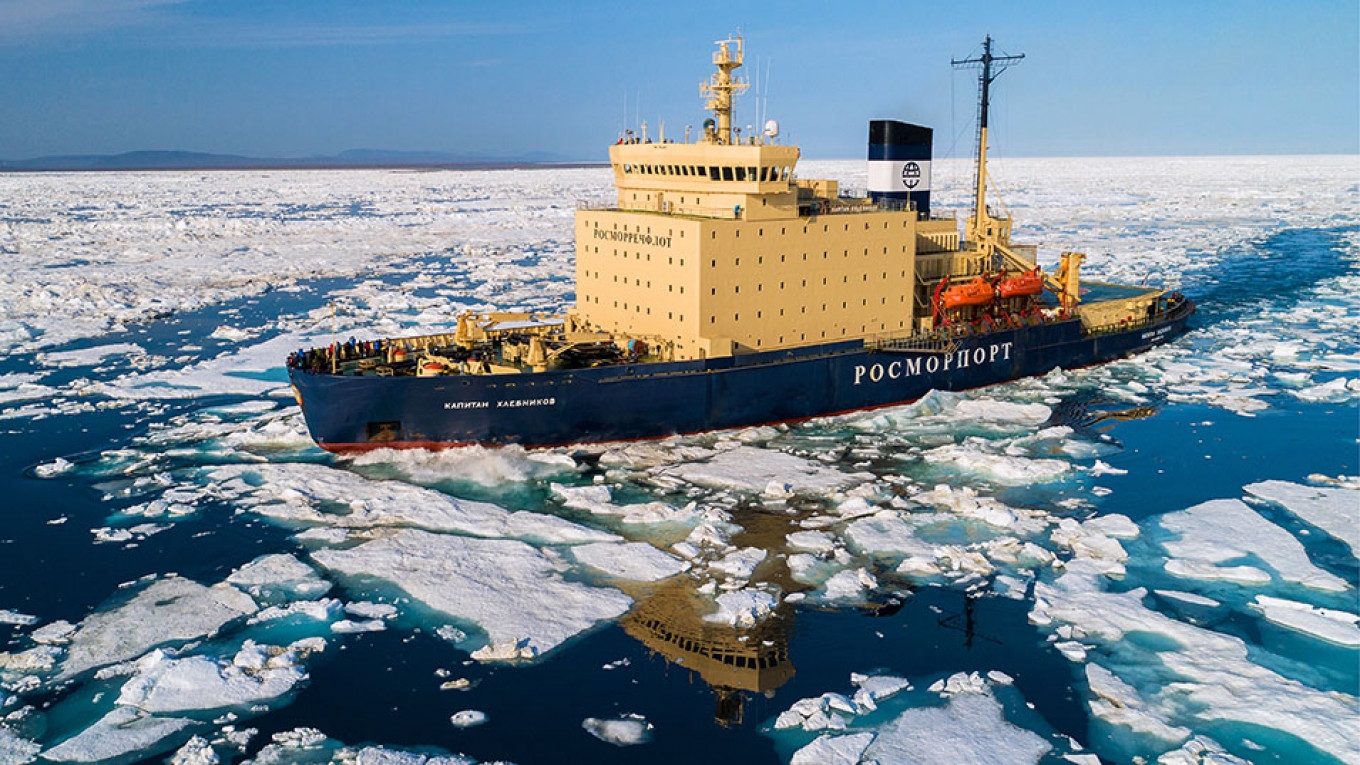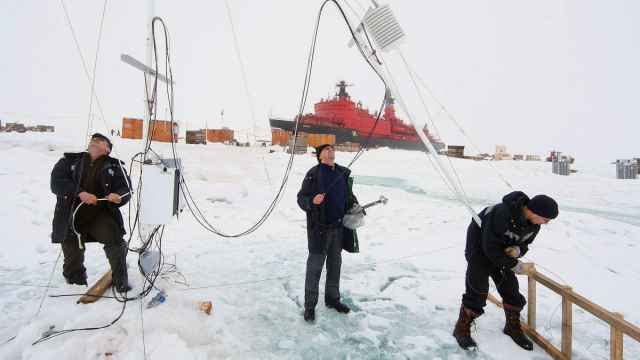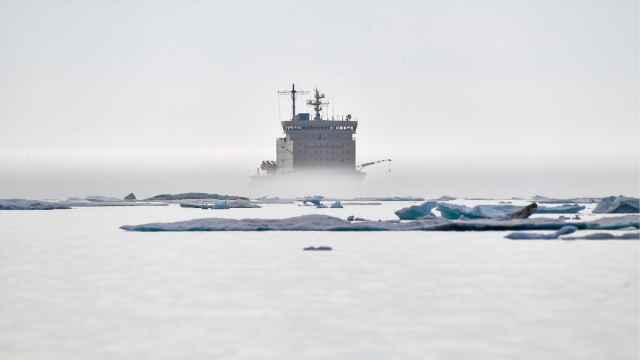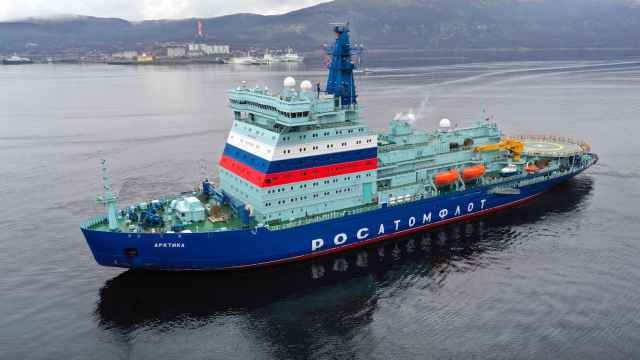The number of ships escorted by Russian icebreakers along the Northern Sea Route increased by 54% between 2018 and 2019.
The increase in ship escorting is caused by an increase in LNG production on the Yamal Peninsula, Rosatomflot, the company managing Russia’s fleet of nuclear-powered icebreakers, said.
The 510 vessels that were escorted through the Arctic ice had a total gross tonnage of 30.29 million tons, Rosatomflot says. That is 54% more than it was in 2018 when 331 vessels with a total tonnage of 12,7 million tons were carried out through the area.
"It is connected with the full project capacity reached by the LNG production plant in Sabetta port," General Director at Atomflot Mustafa Kashka said.
Meanwhile, the total volume of goods shipped on the route in 2019 is still unknown. In mid-November 2019, Rosatom said that goods volumes had reached 26 million tons and that by the end of the year it was expected to reach 30 million tons.
Today, Russia has a total of four nuclear-powered icebreakers and a nuclear-powered Sevmorputcontainer carrier in operation.
A new fleet of icebreaking vessels is in the process of construction. The vessels like LK-60 Arktika, Sibir and Ural are to be delivered in 2020, 2021 and 2022 respectively. In addition, two other LK-60 vessels and three Lidersicebreakers are to be built.
According to Russia’s new development plan for the Northern Sea Route, the first Lider will be ready for sailing in 2027.
The enhanced icebreaker capacity will help Russia to reach its target of 80 million tons of goods on the Arctic route in 2024. This number could reach 157 million tons in 2034, Natural Resources Minister Dmitry Kobylkin said.
A Message from The Moscow Times:
Dear readers,
We are facing unprecedented challenges. Russia's Prosecutor General's Office has designated The Moscow Times as an "undesirable" organization, criminalizing our work and putting our staff at risk of prosecution. This follows our earlier unjust labeling as a "foreign agent."
These actions are direct attempts to silence independent journalism in Russia. The authorities claim our work "discredits the decisions of the Russian leadership." We see things differently: we strive to provide accurate, unbiased reporting on Russia.
We, the journalists of The Moscow Times, refuse to be silenced. But to continue our work, we need your help.
Your support, no matter how small, makes a world of difference. If you can, please support us monthly starting from just $2. It's quick to set up, and every contribution makes a significant impact.
By supporting The Moscow Times, you're defending open, independent journalism in the face of repression. Thank you for standing with us.
Remind me later.






